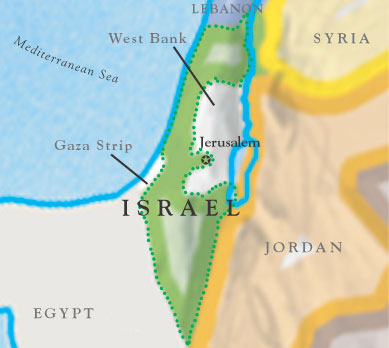Secular candidate elected Jerusalem mayor
 Jerusalem - High-tech entrepreneur Nir Barkat, who billed himself as the "secular candidate," was elected mayor of Jerusalem, results from Tuesday's municipal elections, announced early Wednesday, showed.
Jerusalem - High-tech entrepreneur Nir Barkat, who billed himself as the "secular candidate," was elected mayor of Jerusalem, results from Tuesday's municipal elections, announced early Wednesday, showed.
Barkat won 52 per cent of the vote, compared to 43 per cent for ultra-Orthodox politician Meir Porush, following tallies from all 707 polling stations in the city.
Controversial Russian-born billionaire Arkady Gaydamak garnered only 3.6 per cent of the votes, in part because East Jerusalem Palestinians, whom he especially canvassed in his campaign, largely boycotted the election.
East Jerusalem Palestinians traditionally boycott municipal elections, so as not to be seen as conniving in Israel's occupation of the part of the holy city they want as the capital of their future state.
A fourth candidate, Dan Birron, of the Green Leaf party, which advocates the legalization of marijuana, failed to win even one per cent of the vote.
Barkat will replace Uri Lupoliansky, who in 2003 was elected the city's first ultra-Orthodox mayor, but chose not to run for a second term.
As mayor, Barkat, a 49-year-old successful businessman, will have to deal with the rising cost of affordable housing in Jerusalem, its reputation as one of the country's poorest cities, and a negative population growth as young, secular Jewish couples flee to the Tel Aviv area.
In his victory speech early Wednesday morning, Barkat, who narrowly lost the 2003 municipal vote, promised to be the mayor of all Jerusalem residents, and said he would work on behalf of the religious and secular, as well as on behalf of Jews and Arabs.
In the vote for Tel Aviv mayor, incumbent Ron Huldai fought off a determined challenge by left-wing legislator Dov Khenin to win his third five-year term.
Despite predictions that the contest would go into a second round, Huldai won 50 per cent of the vote, and Khenin 34 per cent. Retired army general Oren Shachor placed third with 10.5 per cent.
Khenin, who ran under the slogan of "a city for everyone," fought what he saw as the increasing trend of Tel Aviv to become a city only for well-off inhabitants.
He said he would continue his fight for the city from the Knesset benches.
Huldai, interviewed on Israel Radio, said he was "aware of the distress" of Tel Aviv residents who shared the fears Khenin highlighted in his campaign.
He said the socio-economic gap in Tel Aviv was the result of the free-market policies adopted by the Israeli government, over which the city had no control.
Incumbent Yona Yahav also won another term in the contest in Haifa, Israel's third largest city, but the mayor of Beersheba, Yakov Turner, a former national police commissioner, was turfed out of office, losing heavily to his former deputy Rubik Danilovich.
In recent years, the results of Israeli municipal contests have had little or no bearing on national elections, as most candidates run at the head of lists promoting local, as opposed to national, issues.
Nonetheless, with Israel holding a parliamentary election in February, all major political parties expressed satisfaction with the results, which they claimed meant their party was headed for success on the national level as well.
The nationwide voter turnout stood at 40 per cent. In Tel Aviv it was almost 37 per cent, up from 29 per cent in the last municipal elections in 2003, and 41 per cent in Jerusalem, compared to 37 per cent five years ago. (dpa)